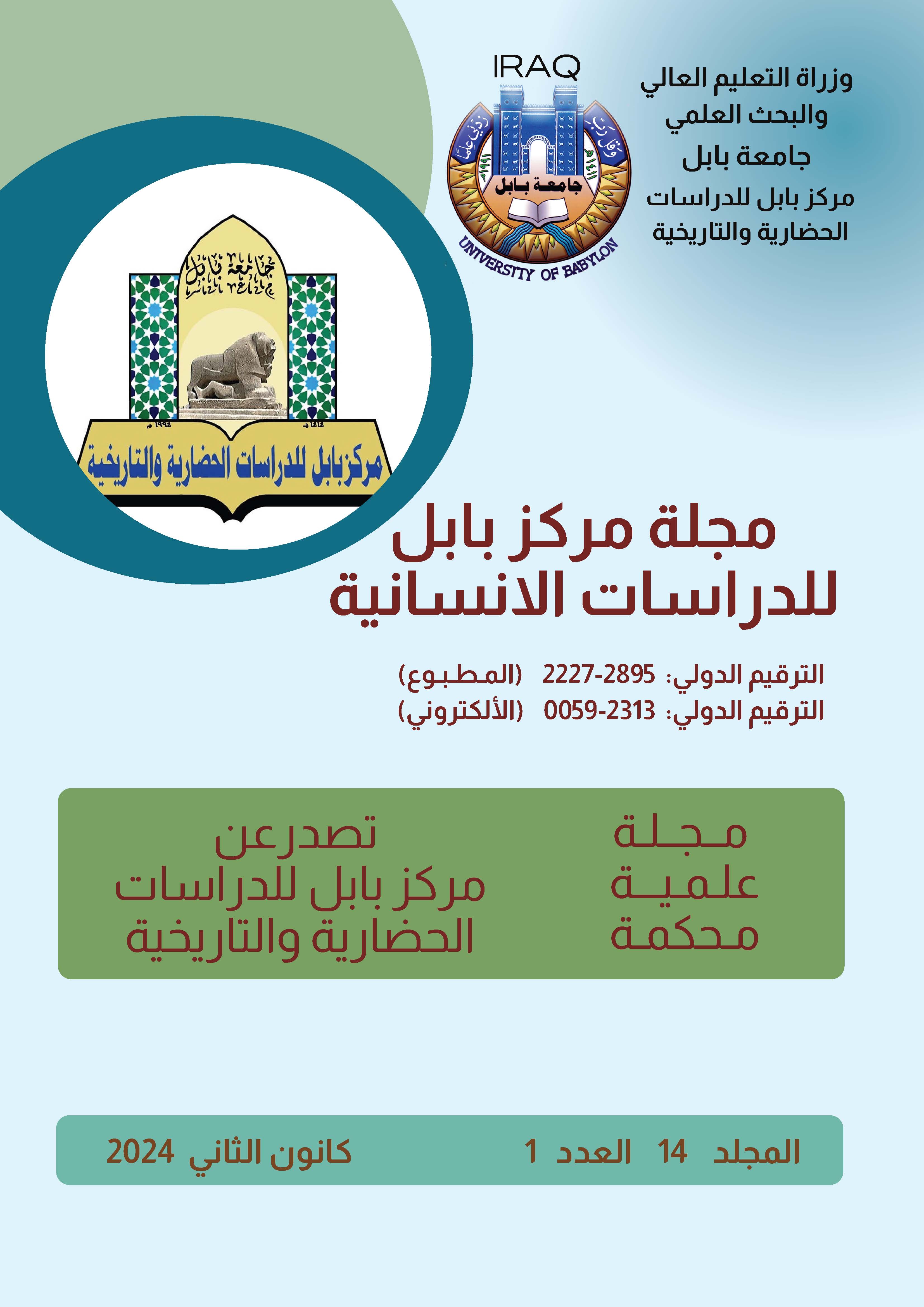Special exploits in the Umayyad era (a study in the book Uyun al-Akhbar)
Keywords:
speeches - influences - sermons - advice - wisdomAbstract
The Umayyad state (41-132 AH/661-749 AD) played a significant role in the history of the Arab Islamic state after the establishment of the Prophet Muhammad (may Allah bless him) and the Rightly Guided Caliphate. Despite the short period of its rule, which did not exceed one hundred years compared to the length of the periods of rule of other states, such as the Abbasid state, for example, it was a period of time in which major events took place related to its particular caliphs and other governors. Due to the importance of this time period in history, I presented this study, which aims to know the special impact through the book “Ouyun Al-Akhbar” by the great historian Abu Muhammad Abdullah bin Muslim bin Qutaybah Al-Dinawari, who died in the year (276 AH/1325 AD).
What is meant by “Dignitaries” is the caliphs, their governors, their covenant governors, their workers, the commanders of their armies, and their children. And the “Influence” is everything that these people mentioned, including sayings, sermons, wisdom, advice, and opinions.
As Al-Dinawari mentioned, this influence came in narrations through sermons in mosques or speaking in private or public gatherings, and the intention of all of this was the desire of these dignitaries to send signals to others, the goal of which was to achieve what they aspire to, in implementing the official orders and decisions of the state or other requests. These signals and demands varied between political, administrative, social and other topics.
Due to the inability to cover the topic regarding the caliphs, as their number reached fourteen caliphs and a large number of governors, workers, and the rest of the dignitaries, I decided to focus on a model of the caliphs and governors. Regarding the caliphs, Caliph Abd Al-Malik ibn Marwan advised his brother Abd Al-Aziz when he assumed power over Egypt, saying to him: You must watch your scribe, your chamberlain, and your companion, for the absent person will be told about you by your scribe, the one who is present will know you by your chamberlain, and the one who is visiting you will know you by your companion.
The transmission of commandments, consultations, or rulings was not done through direct conversation, but rather it was done by sending letters, and as happened with Caliph Omar bin Abdul Aziz, he sent letters to his governors advising them to treat people well and not to exploit the position to harm people by saying, “If your ability makes you oppress people, then remember Allah’s power over you”. As for the governors, their situation was like the caliphs’ in giving advice, wisdom, commandments, and other influences to others, whether they were public or private, and as was reported from Al-Dinawari, the will of the governor of Medina, Utbah bin Abi Sufyan, to the teacher of his children, his saying to him: Let your dreams be your own, for their eyes are fixed on your eyes, for what is good to them is what you like and what is bad is what you find bad. Teach them the conduct of the wise and the morals of writers, guide them to me, discipline them, and be to them like a doctor who does not use medicine until he knows the disease.
This situation was also applied by the Umayyad governors in sending letters, as Qutaybah ibn Muslim Al-Bahili did and sent letters to Caliph Suleiman ibn Abd Al-Malik blaming him because of the caliph’s desire to remove him from Khurasan and appoint Al-Muhallab ibn Abi Sufra in his place. The content of the letters was Qutaybah’s reminder to the Caliph of his obedience and the obedience of his father Abd Al-Malik before, Suleiman doubted Qutaybah’s trust, and as a result, the Caliph decided to remain in his position.







